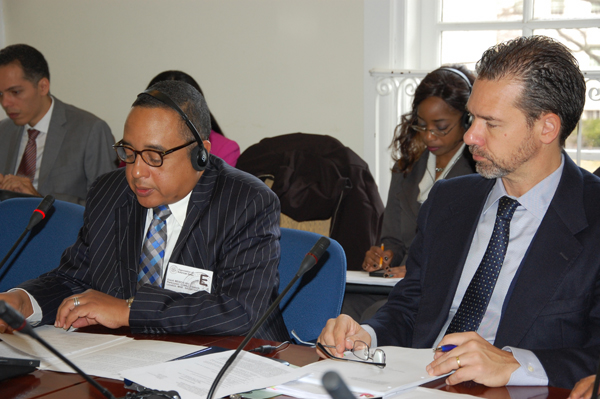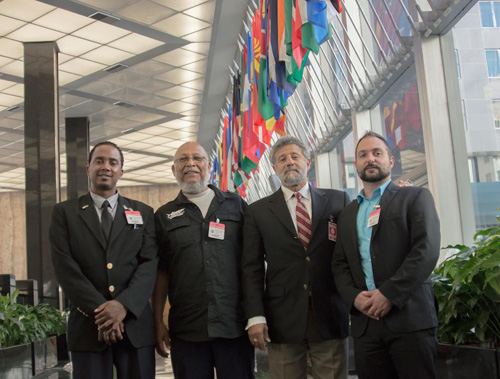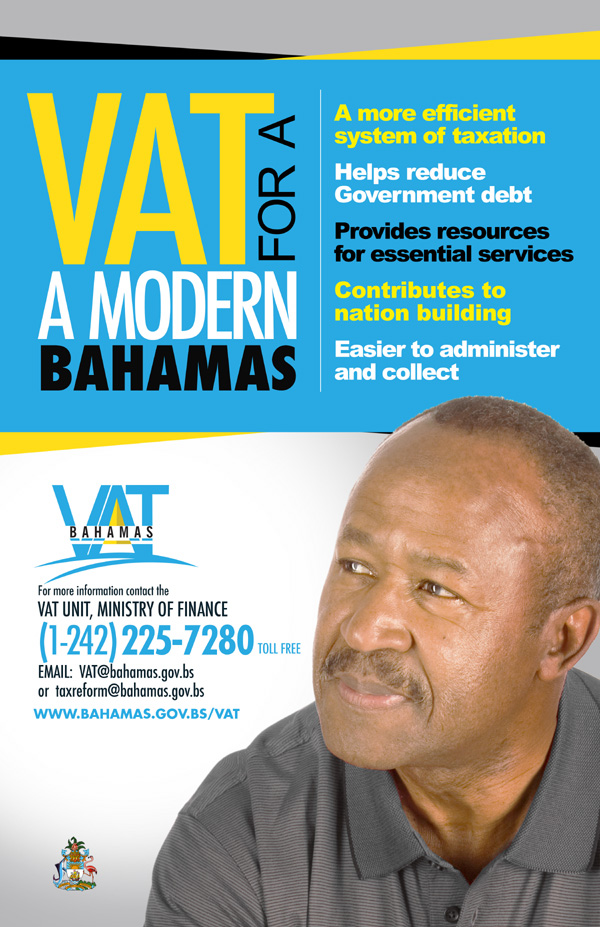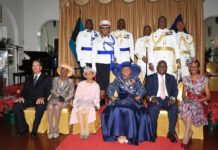
COMMONWEALTH OF THE BAHAMAS
SPEAKING NOTES BY THE MINISTER OF STATE,
OFFICE OF THE ATTORNEY-GENERAL &
MINISTRY OF LEGAL AFFAIRS
THE HON. DAMIAN GOMEZ
HEARING ON “SITUATION OF HUMAN RIGHTS OF MIGRANTS IN THE BAHAMAS”
154TH SESSION
INTER-AMERICAN COMMISSION ON HUMAN RIGHTS
20 MARCH 2015
WASHINGTON, D.C.
IACHR HEARING ON THE SITUATION OF
THE HUMAN RIGHTS OF MIGRANTS IN THE BAHAMAS
PRELIMINARY REMARKS
Good morning Madam President and most distinguished members of the Commission.
My name is Damien Gomez. I am the Member of Parliament for Central and South Eleuthera. I am also Minister of State for Legal Affairs and it is in that capacity that I appear before you today leading the delegation of the Commonwealth of The Bahamas.
At the outset it is our distinct pleasure and the privilege to repeat the extension to the Inter-American Commission on Human Rights (IACHR) of the open invitation of the Government of The Bahamas to visit the Commonwealth of The Bahamas at such times as are convenient to IACHR and at such periods of notice as the IACHR deems appropriate. This repeated invitation is substantive evidence of The Bahamas’ commitment to its transparent adherence to democratic norms such as the
Rule of Law and constitutionalism. We pride ourselves as an example of the Democracy in action and relish the opportunity to further engage in the wider international cooperation for the global attainment of universal adherence to the promotion of the enjoyment of human rights.
It is also with great pleasure that we acknowledge the sterling academic reputation of you, Madam President. It is in your capacity, as a regional academic and champion of human rights, that an invitation extended to you to forge relationship with other academics at the College of The Bahamas in its transformation to the University of The Bahamas. The deepening of the regional sensitivity to human rights and the understanding thereof depends upon vibrant intellectual debate across cultures and boarders. It is our hope the norms embraced by The Bahamas will have universal acceptance in our region irrespective of language, culture, creed or legal system.
Our appearance before you ought to be viewed not merely as a court appearance confined as it were to the four corners of the petitions which is the strict subject matter of this hearing. The general public is aware of these proceedings which are being streamed live on the internet. The general public is aware through press releases and public commentary emanating from at least one of the Petitioners.
Our pleasure and honour to attend before you is marred only by the false, baseless and malicious allegations made against my homeland, The Bahamas and its people. Our history of respecting human rights predates our Independence. Indeed, our support of Haiti and its people in the attainment of economic, political and social stability emanates from an abiding and unflinching belief in the dignity of our shared human condition.
Madam President and most distinguished Commissioners it is with pain that I must refer to allegations written and spoken by one of the Petitioners before you. They have as boldly as the falsity of their allegation asserted that the Government of The Bahamas has embraced Fascism and Nazism in a targeted campaign to commit genocide against Haitian nationals. They even maintained that there are concentration camps in The Bahamas and compared the Detention Center to Auschwitz. These lies can not be left unanswered! It is my solemn duty to protect the name and reputation of our people. That is the sole purpose of my attendance here today. Let not my good manners detract from the depth of outrage collectively felt by the people of the Commonwealth of The Bahamas at the defamation of our country.
In 1648 the original English settlers of The Bahamas arrived to establish a free society in which they might practice their religion without let or hindrance of the English Crown or the Church of England. They settled on the island of Eleuthera, the Greek word for freedom. Shortly after settlement a large number a black slaves were deported from Bermuda to Eleuthera where they were immediately freed. Without a Royal permit the settlers pursued the establishment of their new Jerusalem. They held democratically elected assemblies well before The Bahamas became recognized by the English Crown as a colony to be kept, where upon Letters Patent were issued and our democracy in institutionalized. The Common Law protected human rights. Much later in 1963 a Bill of Rights was enshrined in the second written constitution affecting The Bahamas. In the 1969 and 1973 to further constitutions sought further to explicitly protect human rights by repeating the 1963 Bill of Rights. In colonial and post colonial times human rights has been an essential feature of Bahamian Law and Bahamian Culture.
It is in this context that the public utterances of the petitioners have evoked outrage and contempt as openly expressed by ordinary members of public. We join the public in condemning the outlandish and bizarre allegations made by the petitioners about the people of the Commonwealth of The Bahamas.
Notwithstanding the failure of the Petitioners to identify a victim of human rights abuses in The Bahamas or of a single failing in our domestic judicial institutions to provide adequate redress we appear as Portia to demonstrate the purity of our response to the demands of upholding human rights in good and bad times when even our neighbours fail to respond.
Madam President and distinguished Commissioners, with your leave there are photographs of the detention center for illegal migrants and of the safe house used to keep infants and young persons under the age of 18 with their respective mothers. The new dormitories were built at a cost of over $1 million. Note the bunk beds and the state of the art bathroom and toilet facilities. Hardly a concentration camp, much less Auschwitz!
Note also the furniture and facilities at the safe house rented from the Catholic Archdiocese of Nassau and The Bahamas. Would the Catholic Church not qualify as a part of civil society? Here they participate in a private public partnership to protect young people. Would the Catholic Church partner with purveyors of genocide? Yet this is what the Petitioners would have you believe.
The Petitioners allege that Haitians are singled out. Public records show otherwise. The Government of The Bahamas acts even handedly in respect of the enforcement of our laws. There is no racial or ethnic preference or bias. The figures tell the truth. (see charts provided).
Our National Security agencies have collected intelligence about the smugglers of illegal migrants from Haiti. It is reported the fee charged each migrant ranges from $1500 to $5000. The criminal enterprise of human trafficking and smuggling is a new scourge to our people. It poses new risks to The Bahamas. These risks require a measured response to ensure that our laws are enforced and obeyed by all. The witting or unwitting comfort given by the Petitioners to these criminal enterprises is noted with deprecation.
Our duty to govern is paramount. We cooperate with the international community in the fight against both human trafficking and terrorism. Law enforcement requires that we know and account for all aliens in our jurisdiction as far as is humanly possible. This is consistent with existing law and the amendments to the Immigration Act now being debated in our Parliament.
Our duty to govern also embraces our responsibility to give substance to constitutional rights enjoyed or to be enjoyed by subjects of our Commonwealth. Hitherto the passage of the amendments, children who are natives of The Bahamas but born to foreign parents enjoy no right to remain in The Bahamas during their infancy or minority. At 18 and until their 19th birthday they have a right to apply for Bahamian citizenship. The amendments improve upon the situation of such persons. The amendments confer a status of “belonger” upon such natives, enabling these children to enjoy a legal right to remain in The Bahamas, to attend school, college or university as if they were full citizens of The Bahamas. Additionally, such persons may work without obtaining a work permit. The only right not enjoyed by them is the right to vote. These salutory changes to the law of immigration will benefit literally thousands of Haitian nationals enabling them to open bank accounts and to participate in the formal economy of The Bahamas. For this laudatory achievement the Petitioners defame us, the magnanimous Bahamian people!
Far from fascism or Nazism, we seek the embrace of our brothers and sisters born in our midst to foreigners who made varying degrees of contributions to our development. Many of these people are of Haitian descent but many also are of other nationalities and ethnicity. Many of these people are poor but some of these people are well to do or rich. We seek the inclusion of all of their talents recognizing that The Bahamas benefits by that inclusiveness more than it loses.
Madam President and distinguished Commissioners, we in The Bahamas have faced illegal migration for longer than we have enjoyed independence. Throughout this experience, we have extended Christian charity to the weakest amongst us: infants, children, young persons, the aged, the sick and the infirm. We have provided schools and education, even granting it as a legal right irrespective of the immigration status of the child. We have provided health care irrespective of persons’ immigration status and we have done so for among other things to promote public health and to prevent the spread of communicable diseases. Our history of inclusion is now being questioned in spite of consistent public statements from the Ministers of Immigration, Education, Health and Social Services. This Bahamian tradition is questioned in the face of publicly disclosed expenditure and budgetary data which demonstrates the commitment of The Bahamas to the creation of a democratic, great and socially fair society.
There is no threat to any child in the school system that he or she will be deprived of an education while within The Bahamas. Nor is there any threat to any immigrant that he or she will be denied medical care. Simply there is no basis for the defamatory Petition brought by the Petitioners.
Treason is a Crime and in most countries is punishable by death!













